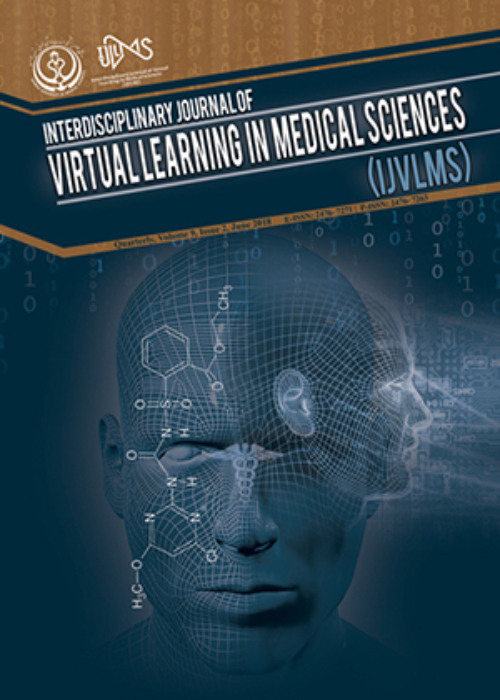Exploring the Interplay of Distance Education, Learning Styles, and Emotional Experiences in High School Students: A Structural Equation Modeling Perspective
Author(s):
Article Type:
Research/Original Article (دارای رتبه معتبر)
Abstract:
Background
Distance education is an opportunity to overcome the limitations of face-to-face education and has provided the idea of education for everyone and everywhere. The current study aimed to examine the correlation between distance education and learning styles, incorporating the mediating influence of emotional experiences among high school students.Methods
The research methodology was correlation type. The statistical population comprised all the first-year high school students in Shiraz City during the academic year spanning November 2023 to 2022, with a sample size of 300 individuals selected through convenience sampling. The research tools included Kolb’s Learning Styles Questionnaire, Sekou and Samson’s Distance Space Questionnaire, and Pekrun et al.’s Emotional Experiences Questionnaire. The data analysis involved utilizing Pearson’s correlation coefficient, path analysis, and structural equation modeling through SPSS V26 and Amos V24 software.Results
The results of the present study showed a significant and positive correlation between learning styles and positive emotions. The coefficients indicated a significant correlation between positive emotions with concrete experience (r=0.21, P=0.01), reflective observation (r=-0.25, P=0.01), conceptualization (r=0.18, P=0.02), and concrete experience (r=0.32), (P=0.01). Negative emotions showed a weak correlation with objective experience (r=-0.19, P=0.02) and observation of reflection (r=-0.21, P=0.01), while no significant relationship was found between negative emotions and the abstract conceptualization learning style (r=0.07, P=0.09). There was also a significant correlation between learning styles and distance education. There was a negative correlation between distance education and objective experience (r=-0.18, P=0.02), while there were positive correlations with reflective observation (r=0.35, P=0.01), abstract conceptualization (r=0.42, P=0.01), and another positive correlation with reflective observation (r=0.29, P=0.03).Conclusion
The results showed that positive emotions can help improve distance education even when the student’s learning style is objective experience or active experimentation.Keywords:
Language:
English
Published:
Interdisciplinary Journal of Virtual Learning in Medical Sciences, Volume:15 Issue: 1, Mar 2024
Pages:
48 to 61
magiran.com/p2710978
دانلود و مطالعه متن این مقاله با یکی از روشهای زیر امکان پذیر است:
اشتراک شخصی
با عضویت و پرداخت آنلاین حق اشتراک یکساله به مبلغ 1,390,000ريال میتوانید 70 عنوان مطلب دانلود کنید!
اشتراک سازمانی
به کتابخانه دانشگاه یا محل کار خود پیشنهاد کنید تا اشتراک سازمانی این پایگاه را برای دسترسی نامحدود همه کاربران به متن مطالب تهیه نمایند!
توجه!
- حق عضویت دریافتی صرف حمایت از نشریات عضو و نگهداری، تکمیل و توسعه مگیران میشود.
- پرداخت حق اشتراک و دانلود مقالات اجازه بازنشر آن در سایر رسانههای چاپی و دیجیتال را به کاربر نمیدهد.
In order to view content subscription is required
Personal subscription
Subscribe magiran.com for 70 € euros via PayPal and download 70 articles during a year.
Organization subscription
Please contact us to subscribe your university or library for unlimited access!



